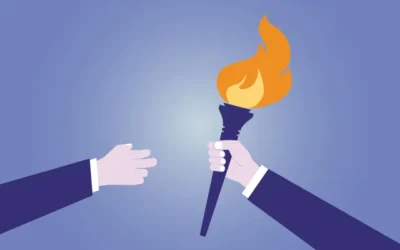Is accounting’s effort to revive the CPA credential and its value too little, too late?
After years of shrinking enrollment, accounting programs across U.S. colleges saw a 12% increase in students in 2024, according to National Student Clearinghouse data cited in the AICPA’s new 2025 trends report. Findings indicate that although enrollment in accounting is up, the number of bachelor’s degrees fell 10.3% from 2021-2022 to 2022-2023 and the rate of decline slowed to 3.3% the following year.
Underneath that enrollment recovery, though, the report hints at a bigger disconnect between education and employment. The Big Four have trimmed their campus recruiting classes, and automation is starting to handle more of the work that used to fill first-year jobs in audit and tax. Though the report doesn’t mention those cuts directly, the data shows a profession that’s training people for a labor market that’s already begun a monumental shift towards shrinkage.
A narrowing funnel
According to the AICPA survey, public accounting firms reported hiring 11,985 new graduates in 2024, three-quarters (75%) of them being accounting majors. Among firms that hired, another three-quarters said they expect to hire the same or more in 2025.
That sounds strong at first glance. But the AICPA received responses from only 1% of the 19,097 firms it surveyed, so, because of that small sample, the report can’t reliably show how many new accounting firms are hiring overall; only what’s happening among a small subset of fewer than 200 respondents.
Meanwhile, the jobs themselves are changing. Routine testing, reconciliations and basic audit support have moved into software systems that can review entire data sets automatically. The report shows that 63% of accounting programs in academia have added instruction in AI, data analytics and tools like Power BI, Alteryx and Python, but it doesn’t address how those updates fit into a job market where automation is reducing many of the roles those skills were meant to fill.
The ability to build a career in public accounting is up for debate. The old apprenticeship model of public accounting was built on grit and repetition. Now, arguably for better or worse, machines can do that work faster and cheaper. The training ground that produced future partners is shrinking, and with it, the pipeline of people who might have stayed in the profession long-term.
At the same time, private equity is consuming the very equity that once defined the partnership model, turning what used to be a long-term ownership path into a short-term investment play that may leave fewer incentives and pathways for young accountants to stay and build careers inside mid-size firms. Despite the takeover, mid-market CFOs in particular have signaled an interest in avoiding firms with this ownership model.
Education adapts, but jobs are fading
The report’s education data show progress in classrooms, even as the job market grows less certain. Data shows that from 2021-2022, master’s degree completions dropped nearly 8% one year and 15% the following year, while bachelor’s degrees showed smaller declines of around 10%. Though at the time this may have been impactful to the CPA profession, the removal of the 150-hour requirement in many states may mean fewer future accountants will even need master’s degrees.
But many of those students may find fewer entry points in the labor market waiting for them. The number of new CPA candidates fell from 48,004 in 2016 to 30,385 in 2020. Similar numbers were reported in 2021 (32,186) and bottomed out in 2022 (30,251). After a bounce back in 2023 to the tune of 42,626 new applicants, 2023 and 2024 saw a new low of just 28,082 new CPA applicants.
The report cites demographic and regulatory factors, but it also reflects a workforce with fewer traditional paths into the profession. Though some Gen Zers have been able to land jobs in accounting, if more graduates are competing for a pool of fewer entry-level jobs, fewer will take the exam and pursue careers in accounting.
The AICPA has tried to counter that trend through its pipeline initiatives, through things like faculty bootcamps, the Accounting+ campaign and the Pipeline Pledge, all designed to make the accounting field more appealing to young professionals. These efforts focus on getting students into accounting programs, but the bigger problem may be on the other end and outside of the AICPA’s scope: The jobs that used to absorb them have begun disappearing.
A pipeline for a smaller profession
Though efforts to make the CPA licensure process a bit more seamless are there, these efforts alone won’t replace jobs. The National Pipeline Advisory Group outlined six priorities for rebuilding the profession within the AICPA report, from “enhancing the academic experience” to “telling a more compelling story about the field.” Those goals make sense at the surface, but they assume the same employment model that is likely on its way out will be available to the next generation of accountants.
Though automation doesn’t erase the need for CPAs, all signs indicate it will reduce how many are needed to do the same work. A first-year associate who once spent weeks tying out ledgers may now find themselves overseeing AI systems that do it in hours.
That could deepen the decline in CPA licensure. The number of candidates who passed their fourth exam section fell sharply in 2024, partly due to a NASBA reporting change, but it continues a downward pattern that, according to AICPA data, has been in the works for years.
The AICPA hopes its push for STEM recognition of accounting will help reposition the field as a technology-focused career. That could make it more attractive to students, but without strong entry-level hiring, the profession risks training people for jobs that may not be available to them down the line.





